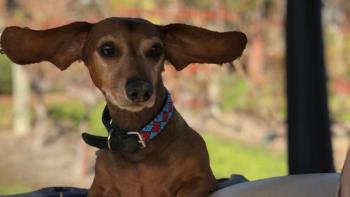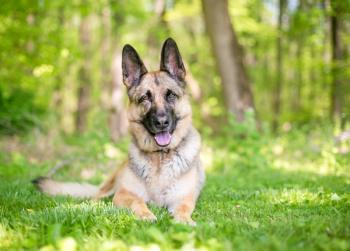
Research Updates: Is hypotonic water effective as an adjuvant therapy for canine mast cell tumors?
This study's design limited the biases (nonrandomized patient population, complete tumor resection) inherent in previous studies that showed a decrease in mast cell tumor recurrence in dogs after deionized water injection and surgery.
Cutaneous mast cell tumors occur frequently in dogs, and successful therapy is based on wide and complete surgical excision. When the size of a tumor or its location results in incomplete resection, adjuvant therapy with radiation is recommended. A simpler alternative to radiotherapy has been to use local injections of hypotonic (deionized or distilled) water to kill residual mast cells, although previous reports in the literature have yielded conflicting results.
Joseph Harari
In this prospective, randomized, double-blinded, placebo-controlled clinical study from the University of Utrecht in the Netherlands, the efficacy of hypotonic water as an adjuvant therapy after incomplete resection of mast cell tumors in 30 dogs was evaluated. These dogs had no regional lymph node involvement (stage 0, WHO classification), and most tumors were grade II. After tumor excision, 18 dogs were treated with isotonic lactated Ringer's solution (placebo) injected into the open wound bed, and 12 dogs received hypotonic distilled water injections. The volume of each treatment was variable, and the injections were repeated four times every seven to 10 days with the dogs sedated. A side effect of the injections with both types of fluid was transient (up to 12 hours) painful muscle contractions.
At one and two years after tumor excision and fluid injection, no significant differences in the recurrence-free rates (93.7% in the hypotonic group; 90.9% in the placebo group) and survival rates (93.7% in the hypotonic group; 83.3% in the placebo group) were observed between treatment groups. A poorer prognosis was observed for grade II and III tumors. The authors concluded that hypotonic water does not decrease local recurrence or improve survival times in dogs with solitary mast cell tumors treated by surgical excision.
COMMENTARY
This study's design limited the biases (nonrandomized patient population, complete tumor resection) inherent in previous studies that showed a decrease in mast cell tumor recurrence in dogs after deionized water injection and surgery. It is interesting to note that in this study the volume of injected fluid was variable and based on tissue swelling vs. using a standard amount of water.
Brocks BAW, Neyens IJS, Teske E, et al. Hypotonic water as adjuvant therapy for incompletely resected canine mast cell tumors: a randomized, double-blind, placebo-controlled study. Vet Surg 2008;37(5):472-478.
The information in "Research Updates" was provided by Veterinary Medicine Editorial Advisory Board member Joseph Harari, MS, DVM, DACVS, Veterinary Surgical Specialists, 21 E. Mission Ave., Spokane, WA 99202.
Newsletter
From exam room tips to practice management insights, get trusted veterinary news delivered straight to your inbox—subscribe to dvm360.





